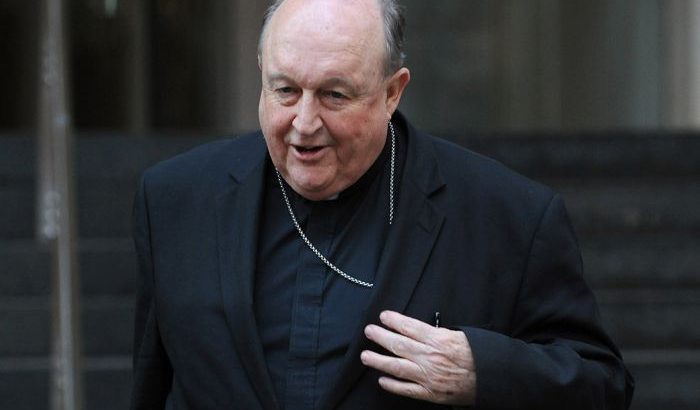The Archbishop of Adelaide was sentenced to a 12-month sentence on Tuesday after being convicted in May of failing to report allegations of child sexual abuse disclosed to him in the 1970s.
Archbishop Philip Wilson is likely to serve his sentence under house arrest, and be fitted with an electronic monitoring bracelet, according to media reports.
A judge must confirm that arrangement at an August 14 hearing before it can be finalised.
Wilson (67) has not resigned from his position as Archbishop of Adelaide.
Pope Francis appointed on June 3 Bishop Greg O’Kelly SJ, bishop of Australia’s Diocese of Port Pirie, to serve as apostolic administrator of the archdiocese, entrusting him with day-to-day leadership responsibilities.
Bishop O’Kelly (76) is not expected to succeed Wilson, as he has passed the age at which bishops customarily submit a resignation letter to the Pope.
At Wilson’s sentencing hearing on July 3, Magistrate Robert Stone said Wilson had shown “no remorse or contrition”.
Wilson was convicted of concealing child sexual abuse committed by a fellow parish priest in New South Wales in the 1970s. At the time, Wilson had been ordained a priest for only one year.
Victims
The victims of the scandal, Peter Creigh and another former altar boy who is unnamed for legal reasons, said they both had told Wilson of their abusive experience with Fr James Fletcher.
During the trial, Mr Creigh said that he told Wilson in graphic detail of the abuse in 1976, five years after it had occurred. However, Wilson said the conversation never took place, noting in a court hearing April 11: “I don’t think I would have forgotten that.”
The second victim said he had told Wilson of the abuse in the confessional in 1976, but that Wilson had dismissed the boy with a penance, saying that he was lying.
Wilson said he would never tell someone in the confessional that they were untruthful, and that he did not remember having seen the boy at all in 1976.
Fletcher was convicted of nine counts of sexual abuse and was jailed in 2006. He died of a stroke within the year. Wilson said he had no previous suspicions about the integrity of Fletcher’s character.
Wilson also told the court that if he had been notified of the scandal, he would have offered pastoral care to the victims and their families, and reported the event to his superiors.
Wilson’s legal team argued during the trial that child sexual abuse was not understood in the 1970s to be a crime that was required to be reported to authorities.
Stone, however, said that protecting the Church was Wilson’s “primary motive” for failing to report the abuse allegations.


 Archbishop Philip Wilson
Archbishop Philip Wilson 